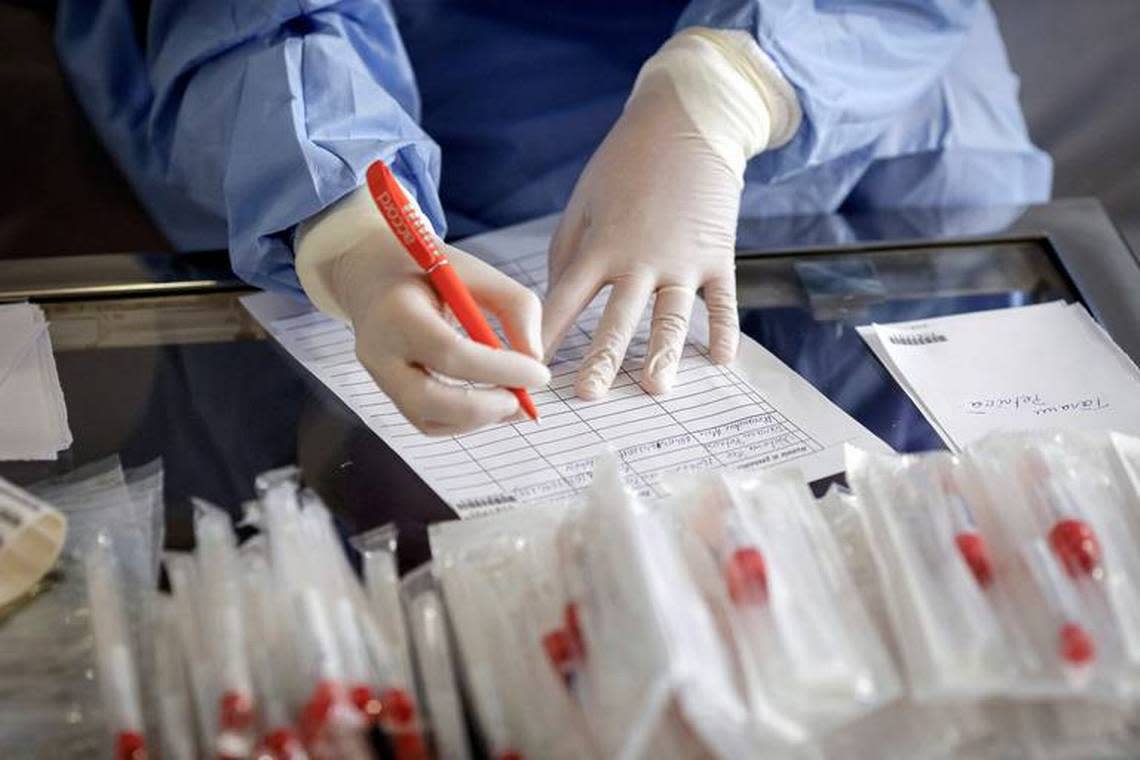Worried about catching COVID-19? Here’s how experts say to improve respiratory health

While the majority of people who develop COVID-19 survive the disease, poor respiratory health can seriously hurt a patient’s odds of pulling through, experts say.
Whether you have a diagnosed lung disease, or just get a little winded climbing the stairs, here are the best ways to get your lungs in fighting shape.
Cut out smoking
Smoking and vaping put people at higher risk with COVID-19, officials have determined.
Both harm lung tissue, making it fragile and susceptible to infection, according to the American Lung Association.
Tobacco use weakens the immune system while also destroying cilia-containing cells in the body’s airways, “which are our essential defenders against viruses like COVID-19,” according to the ALA. “Without them working properly, our lungs are more vulnerable.”
“COVID-19 is a lung infection that aggressively attacks the lungs and even leaves lung cells and tissue dead,” ALA Chief Medical Officer Dr. Albert Rizzo said. “While it’s important to prevent getting COVID-19 in the first place, it’s also essential that we do all we can to keep our lungs healthy to avoid the worst effects of the disease.”
Exercise
Go for a run or a walk, do a body weight workout in the living room, maybe some yoga if you’re feeling daring. The key is to kick the heart rate up and get the lungs huffing and puffing, experts say.
“Lungs at rest and during most daily activities are only at 50 percent of their capacity,” said Jennifer Ryan, a certified specialist in cardiovascular and pulmonary physical therapy, according to Rush University. “Like the rest of your body, lungs thrive on movement and activity.”
The lungs need to be challenged to grow stronger and achieve better function, Ryan said, adding that exercise also can“counteract” lung buildup and cleanse the lungs of allergens, pollutants and debris.
“Regular moderately intense activity is great for the lungs, and when you increase your daily activity you get three things done at once: healthy lungs, a healthier heart and a better mood,” Ryan said.
She recommends a minimum 20 minutes of moderate-intensity exercise every day.
Eat better
Besides causing a whole host of underlying health conditions, obesity ups the odds of acute respiratory distress syndrome, “a major complication of COVID-19” that makes it harder for the doctor to help a patient breathe, according to the CDC.
Obesity can throw the body out of balance in a number of ways, including how it releases an inflammatory protein called cytokine, according to Discover Magazine.
In the right amount, cytokine can be helpful in fighting infections. But for those suffering from chronic inflammation, as is more common in obese people, the body may respond with too much cytokine -- a “ctyokine storm,” damaging organs and in some cases causing death.
A high-antioxidant diet is a good way to reduce inflammation, better preparing the body if and when infection strikes, Bruce Levy, the head of the Division of Pulmonary and Critical Care Medicine at Brigham and Women’s Hospital, told the outlet.
“If you can get them, bananas, apples, tomatoes and grapes are all foods that are rich in natural antioxidants and can reduce inflammation over time,” Levy said.

